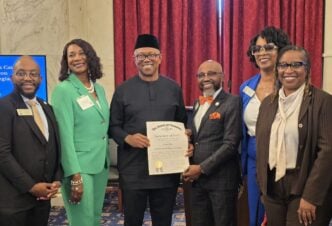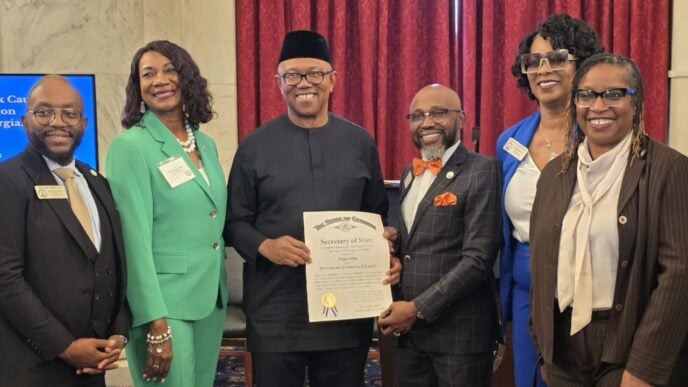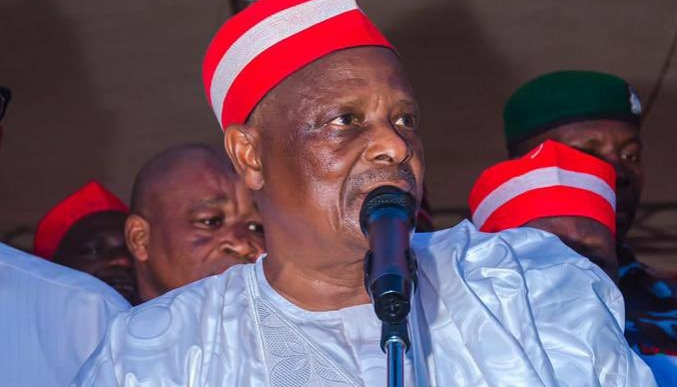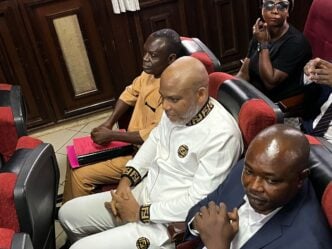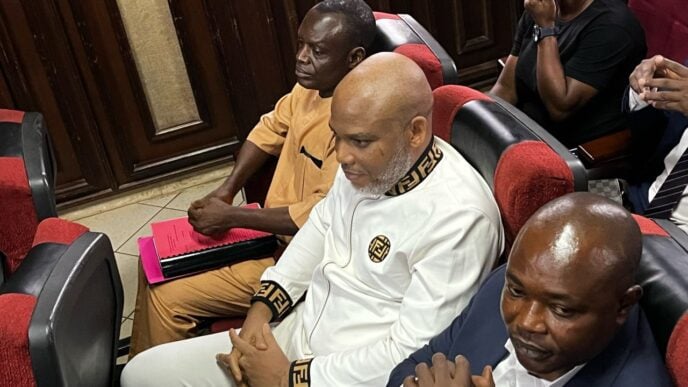Kayode Egbetokun, inspector-general of police | File photo
Kayode Egbetokun, the inspector general of police (IGP), says officers of the Nigeria Police Force (NPF) will no longer serve as enforcers for private interests.
In early September, Azuka Ogujiuba, publisher of Media Room Hub, narrated how she spent three days in police custody in Abuja, for publishing a report about a land dispute.
Ogujiuba, a former journalist with THISDAY newspaper, said her journey into the detention started in July when she received an invitation letter from the office of the IGP to appear at the force headquarters in Abuja over an alleged case of cyberbullying.
‘NPF NOT ENFORCER OF PRIVATE INTERESTS’
Advertisement
Speaking on Thursday, Egbetokun warned officers against involving themselves in land disputes or civil matters without clear criminal elements, adding that such actions undermine the force’s neutrality and reputation.
“Nigeria Police Force is not and will never become an enforcer for private interests,” he said.
“Officers have no business escorting parties for land recovery business, disrupting legally existing occupations, or meddling in civil claims without a demonstrable criminal element.”
Advertisement
He added that any officer found crossing this line would face disciplinary action.
Egbetokun also inaugurated a nationwide training programme for police operatives on the newly introduced Criminal Database Systems, which he described as the “nervous system of 21st century Nigerian policing”.
The launch took place in Abuja, and marks a shift from reactive policing to proactive, intelligence-led operations based on data analysis and international cooperation”.
“This training is more than an exercise; it is a declaration that the NPF has stepped into a new era. Without data, there is no memory. Without memory, there is no justice. But with data, there is no hiding place for criminals,” Egbetokun added.
Advertisement
The IGP acknowledged that poor record-keeping, fragmented intelligence, and scattered files have long been weaknesses in Nigerian policing, often resulting in stalled prosecutions and diminished public trust.
He vowed that the new system would end the era of “forgotten files”.
“With the support of the Federal Government and our partners, we are building a system where every arrest is recorded, every case is documented, and every officer is accountable. No case will vanish into forgotten files. No conviction will disappear into silence,” he said.
Egbetokun said the database would enhance domestic law enforcement and align Nigeria with global policing standards.
Advertisement
He noted that the platform will integrate with INTERPOL, the African Union Border Programme, and UNODC frameworks, ensuring that criminals convicted in Nigeria cannot evade justice abroad.
“When a trafficker is convicted in Nigeria, the world must know. When a weapon is seized at our borders, its trail must echo across continents,” the police boss declared.
Advertisement
He urged the first batch of officers undergoing training to view themselves as custodians of the nation’s crime data.
“Every case you enter, every record you preserve, every link you verify, will strengthen justice in our nation. You are not merely handling files; you are safeguarding the future,” Egbetokun said.
Advertisement



